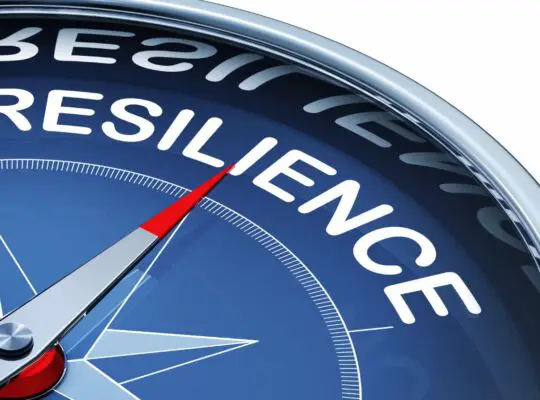It’s Time To Stop Suffering In Silence
Every day, people facing mental health challenges decline proper professional help. Instead, they suffer in silence, attempting to soothe and self-medicate themselves to alleviate the pain from their mental health struggles, such as chronic loneliness or emotional pain.
While suffering in silence may seem like a wise strategy, it rarely ends well. Often, when a person chooses to suffer in silence, they’re making their existing issues even worse. It requires a lot of effort to ignore or hide mental health struggles; putting on a facade that everything is fine and normal when you’re facing hard emotional times is mentally exhausting for someone who is already struggling.
If you tend to suffer in silence rather than seek real help for your mental health challenges, learning to overcome the urge to ignore or hide your problems is a must for getting yourself on a healthier pathway that leads you to healing and relief.
What It Means To “Suffer In Silence”
People who find themselves suffering in silence don’t seek any kind of help or assistance for their mental health struggles.
For example, a person suffering in silence may recognize that they’re having a hard time dealing with a mental health challenge such as chronic loneliness or emotional pain, but instead of seeking the help of a professional to begin processing and working through those emotional challenges, they attempt to hide or ignore their suffering instead.
4 Reasons People Choose To Suffer In Silence Rather Than Seeking Professional Help
There are a variety of reasons why a person may choose to suffer in silence rather than seeking professional help for a mental health challenge. For example, consider the following examples:
1| A person may choose to suffer in silence because they feel ashamed for needing help with a mental health challenge.
There are many negative stigmas surrounding mental healthcare and mental health struggles. Unfortunately, there are quite a few people who believe issues with mental health are the result of a “weak personal constitution” and that people struggling with loneliness, emotional issues, or other mental health challenges can resolve them without any assistance if they try hard enough.
This incorrect belief is quite far from the truth. In fact, many folks who seek professional services and tools such as therapy and medication to help treat their mental health issues see fantastic results.
This is because mental health care is healthcare, just as getting your routine physical and dental checkups are also healthcare. Just as you’d visit a doctor for a broken bone or sore back, you can also visit a doctor when your mental health isn’t feeling right.
2| A person may choose to suffer in silence because they believe it’s easier to hide or ignore difficult emotions such as loneliness.
Emotional repression is a common way many people choose to deal with challenging emotions. Learning how to embrace and actually feel emotions is frightening – so many emotions are downright unpleasant, and the thought of having to face them directly and experience those feelings makes people uncomfortable.
Rather than feeling uncomfortable and actually experiencing the emotion, many people learn early in life that they can repress their emotions. Repression, or ignoring/hiding your emotions, is similar to keeping a lid clamped down on a pot of boiling water.
Eventually, the clamps on the pot lid are going to snap off under the immense pressure. Repressing emotions works the same way – if you continually hide and ignore those difficult emotions, they aren’t going to disappear.
Instead, they will build pressure until they eventually “come out” in a way that’s even more unwanted and uncomfortable than allowing yourself to feel them in the first place.
3| A person may choose to suffer in silence because they are adhering to societal expectations, they believe they must follow.
Societal expectations prevent some people from seeking help for mental health challenges. This particular reason is similar to #1 for men, specifically.
Generally, masculinity in our society honors the notion that being a real man means solving your own problems and dealing with tough stuff on your own.
Asking for help is seen as a sign of weakness. Instead, men are led to believe that they should figure out everything alone without seeking help from someone else to do so – this is especially true for emotional issues such as loneliness.
Another toxic factor of this stereotype is that men shouldn’t display or express their emotions. When this is coupled with the notion that “real men” can solve all their own problems, you are left with a recipe for emotional disaster.
4| A person may choose to suffer in silence because they don’t know how to properly identify and discuss their emotions.
Having the ability to identify your emotions is incredibly important. Without this skill, people don’t know how to express what they’re feeling. When complex emotions arise and you don’t have the ability to discuss them or describe them to others, it becomes much easier to repress them instead.
Case Study: An Example of What Suffering in Silence Looks Like
Gemma is a first time mother. She just had her baby girl last month. She and her partner are over the moon with excitement about this massive life change, but Gemma also notices that she’s experiencing some other strange emotions as well.
Ever since she gave birth, Gemma has not felt like her usual self. In fact, she feels downright depressed and sometimes completely unenthusiastic about being a parent. Her partner is so excited and seems to be taking on the role of parenting with extreme ease, but Gemma feels like she’s struggling to pull her weight with responsibilities with the new baby.
While Gemma goes through the motions of parenting and completes the bare minimum necessities, she needs to do to keep herself and her baby going – she pumps breast milk, does laundry, changes dirty diapers, soothes the baby when she’s cranky, and everything else needed to keep the household running and their newborn comfortable.
However, Gemma is disappointed to learn that she doesn’t enjoy the role of motherhood as much as she thought she would. In fact, she finds a lot of it unpleasant and finds herself struggling to form a meaningful relationship with her new baby.
Gemma is feeling incredibly frustrated – motherhood was supposed to feel like this big, magical change in her life, but all she’s experiencing is disappointment so far. Because she feels disappointed, she also feels guilty.
She’s supposed to be falling in love with her new baby and being a mom, but instead, she finds herself longing for her old, childfree lifestyle. She feels frustrated and upset more often than not. She loves her newborn daughter, but Gemma has a hard time understanding how she can care for her daughter so much while also feeling so frustrated, disappointed, and depressed. This combination of emotions is incredibly confusing and overwhelming.
Gemma realizes that her emotions are complicated and that she’s struggling to maintain her composure. She watches her partner glide through parenthood effortlessly; because her partner is such a natural at parenting, she feels like she can’t possibly discuss her emotional experiences with them in a way where she’d feel understood and validated.
Instead of reaching out to her partner or mentioning these emotional challenges with her provider during her postpartum doctor’s appointments, Gemma decides to keep her emotional struggles to herself. After a while, keeping these emotions hidden and repressed begins to make her feel super isolated and lonely.
When Gemma attends her weekly new mom group, for example, she feels intimidated by how happy all the other new moms seem to be – she can’t possibly describe her emotions to them without sounding like a monster. Instead, she keeps her feelings to herself and decides to “suffer in silence.”
7 Dangers Of Choosing To Suffer In Silence
You Can Develop New Mental Health Issues Or Make Existing Ones Feel Even Worse
Suffering in silence adds a lot of extra, undue stress on your body. If you’re already struggling with a serious mental health issue, allowing yourself to continue on miserably without any assistance or professional intervention can make those problems even worse.
Another frightening aspect to this danger is that suffering in silence – especially suffering from loneliness or other difficult emotional battles – can lead to the formation of new mental health issues.
The stress and anxiety caused by trying to single handedly manage a very difficult mental health issue can cause people to develop panic attacks, depression, and a whole host of mental health issues.
You Can Increase Existing Feelings Of Loneliness And Isolation
Suffering in silence increases existing feelings of loneliness and isolation. If you’re already feeling lonely (and perhaps dealing with chronic loneliness), you are already struggling to connect with others in a meaningful way.
When you’re struggling to connect with other people and suffering in silence because of it, those intense feelings of loneliness and social isolation can become even greater.
Your Issues Can Reach A Point Where Intervention Becomes Difficult
Consider the last time you tried to hide a mistake or error from someone. After a period of time, trying to hide the mistake becomes a huge challenge – the longer you go on trying to act normally and pretending that nothing is wrong increases your feelings of stress and anxiety, making the situation feel much worse than it already did! By the time you’re ready to admit to the mistake, more damage is done and it’s tougher to undo what’s already transpired.
Choosing to suffer in silence works in a similar way. When you first realize you’re struggling, it’s imperative that you reach out to your support network, a trusted friend, or a medical professional for assistance.
While it may be a challenge for you to admit that you need help, it will save you from potentially finding yourself in a situation where intervention becomes incredibly difficult to initiate successfully.
You Reinforce The Incorrect Notion That You Aren’t Good Enough Or Don’t Deserve To Feel Bette
Any time you allow yourself to suffer in silence, you unknowingly reinforce the idea to yourself that you aren’t good enough or don’t deserve to feel better. This is an unfortunate subconscious side effect of resisting outside help from others and depending on yourself to solve your issue independently.
To illustrate this idea, consider the following example: If you saw someone ignoring their best friend’s cries for help, you’d probably assume that the person doing the ignoring was probably a pretty cruddy friend.
The same notion applies to the way you treat yourself. When you’re struggling and choose to not get yourself the help you truly need to heal, you’re unintentionally reinforcing the idea that you don’t deserve to get help or that you don’t deserve to feel better.
While this may not be your intention, your actions communicate this idea to your subconscious mind, making you feel worse.
You Create An Environment Where Negative Thinking Can Increase Rapidly
While suffering in silence is already a big enough problem when you consider the fact that you’re already struggling with tough emotions, it can cause tons of problems in other areas of your life, too. For example, when you suffer in silence, you’re not sharing your issues or worries with anyone else but yourself. This creates a toxic breeding ground for negativity.
This type of negativity can begin to leech into many other aspects of your life. As you suffer in silence and stew in your existing issues, it can be easy to allow negativity to touch other parts of your life, such as your relationships with friends, your job, your passion projects, and more.
Areas of your life that were once happy can become negative when you allow your negative thinking to flourish in silent suffering.
You Avoid Being True To Yourself
Suffering in silence causes a lot of extra pain and stress on your mind, body, and spirit. When you feel that your pain, loneliness, or mental health challenge has progressed to the point of needing help, listen to yourself and trust your intuition to guide you.
When you suffer in silence and choose to ignore your intuition’s signals that you need help, you aren’t being true to yourself. Many folks associate being true to yourself as sticking to your values or doing right by your moral guidelines but being true to yourself also refers to caring for yourself. When you feel signals from your body that you’re in need of assistance and then you ignore them, you are no longer being true to yourself.
You Lose The Quality Of Your Close Relationships With Other People You Care About Deeply
When you suffer in silence, nobody else is aware of how severe your issues have become. In fact, if you’re suffering in silence too stealthily, even your closest friends and family members may be totally unaware that something is amiss!
However, your friends and family members may notice significant changes in your mood or behavior that upsets them. If you suffer silently and don’t share what’s bothering you, those repressed emotions can begin to bubble and build pressure under the surface.
Sometimes, that pressure can involuntarily release as outbursts, anger, or moodiness unintentionally directed at the people in your life. While those outbursts may be unintentional, your friends and family members aren’t always aware of that fact – acting this way may cause them to avoid you or change their feelings about you.
7 Strategies For Learning How To Not Suffer In Silence
1| Practice Getting Comfortable With Your Uncomfortable Emotions
Emotions are tricky, but one of the best ways to make dealing with them a little bit easier is to tackle them up-front. When you handle your emotions and process them as you experience them, you eliminate the risk of repressing them and making your situation much worse.
A great way to begin facing your emotions head-on is to start getting comfortable with being uncomfortable. This may sound conflicting, but simply put, it means getting yourself into the habit of acknowledging an emotion as you’re feeling it.
For example, the next time you’re feeling lonely, upset, or frustrated, don’t ignore the emotion or brush it off as “no big deal.” Instead, try to vocalize why you’re feeling those emotions. As you talk yourself through your feelings, you’ll notice that it becomes easier to identify the triggers causing those emotions.
When those emotions and triggers are easier to identify, it becomes easier to talk about why you’re feeling that way with yourself and other people.
Allowing yourself to feel and experience an uncomfortable emotion is challenging, but with practice, you can learn to get progressively more comfortable addressing them.
2| Admit Out Loud That You Need Some Help
Many people are under the incorrect assumption that asking for help is a sign of weakness. This couldn’t be further from the truth!
Everyone needs help from time to time. Human beings are naturally social creatures; we all depend on someone else from time to time, whether it’s for entertainment, companionship, or assistance.
If you’re approaching your mental health struggles, such as depression or loneliness from a “lone wolf” perspective, you’re going to need to share with someone that you need help, whether it’s to a friend, family member, or mental health professional.
If the idea of asking for help makes you feel uncomfortable, you can practice asking for help by acknowledging aloud to yourself that you need help. The simple act of telling yourself “I need help to solve this problem” helps put the reality of what you’re experiencing into perspective.
If needed, repeat the phrase to yourself multiple times to help solidify those feelings. Use this as a tool to get yourself more comfortable with acknowledging a need for outside assistance.
3| Learn More About Treatment Options And Get Past The Stigma Of Seeking Mental Health Help
While many people would benefit from mental health treatment from a professional, few people end up seeking it. For example, out of all adults across the United States who would benefit from mental health services in 2020, only around 38% actually sought professional help or treatment. That’s less than half of folks using these valuable resources to help themselves feel better and find relief!
Many people who would benefit from mental health treatment such as therapy, for example, avoid seeking it out because of mental health stigma.
The notion of visiting a therapist, counselor, or psychiatrist can carry negative connotations: Many people don’t want to disclose the fact that they’ve needed help from a mental health professional because they didn’t want to be perceived as “weak” or “crazy.”
Truthfully, mental health professionals are the same as any other medical service. Just as you’d visit a doctor to get stitches or find a solution to your heartburn problems, you can visit a mental health professional for help with your emotional issues and beyond.
4| Choose To Give Yourself The “Best Friend” Treatment
Think about your oldest, closest friend. If that friend were struggling with a serious mental health concern, you’d want them to reach out and find the help they needed to begin healing.
Start treating yourself like your own best friend. Instead of continuing to suffer in silence, think about what you actually deserve. Just like your best friend, you deserve to find relief and comfort from reaching out to someone about what’s been troubling you.
If the idea of treating yourself like your own best friend seems odd, remember this important life fact: Out of every relationship you’ll ever have with another human being, nobody will ever be as close to you as you are with yourself. You know all your innermost secrets, emotions, and passions. If you aren’t on your own side, getting through life can be a serious struggle.
Don’t let your very best friend struggle like that. Get used to giving yourself the “best friend” treatment because you truly are your own best friend in this life.
5| Challenge Your Assumptions And Beliefs About What You Deserve
People make assumptions about everything. Sometimes, these assumptions are harmless (for example, you can assume that it’s going to be a rainy day or that your coworker might be in a grumpy mood), but other times, these assumptions can be disastrous.
Begin challenging your assumptions about what you deserve in life. People suffering in silence tend to never question their assumptions about what they do or don’t deserve because they don’t realize they have the power to do so.
For example, someone suffering in silence may automatically assume or believe
- That suffering from their particular challenge makes them “less than” other people
- That they’ll never be able to achieve a true resolution from their issues
- That they deserve to feel miserable
- That the “universe” or “God” (or any other greater entity/deity) is punishing them and therefore they deserve the hardships they’re experiencing
- That showing any signs of weakness makes them a bad person
- ….the list is, unfortunately, endless.
Assumptions like these are automatic. A person suffering in silence assumes life is “always going to be like this.” In reality, the person suffering in silence isn’t challenging these assumptions and immediately accepts them as the truth.
You can begin challenging these problematic assumptions by looking at the facts of your reality. For example, if you experience the assumption:
“I am going to look so weak if I admit that I’m struggling with loneliness.”
Flip the script on that thought by challenging it with a fact:
You can’t assume you know how people will react. You don’t know that others will think you’re weak.
6| Let Go Of Any Desire To Be 100% In Control
Suffering in silence suggests that a person can maintain total control over themselves, their emotions, and their mental health challenges. It is a fact that nobody will ever have 100% control over everything that happens to them in life. The sooner you’re able to accept this fact, the sooner you can begin moving past suffering in silence.
Letting go of your control is challenging and requires an enormous leap of faith but realizing that you don’t have (and will never have) total control over your life releases your spirit from an overwhelming and impossible amount of responsibility.
Once that difficult barrier is shattered, you can allow yourself to move forward and seek the help you need to begin feeling better and recovering from your mental health struggles and difficult emotions.
7| Although You’re Suffering In Silence, It’s Important To Remind Yourself That You’re Not Actually Alone
Suffering in silence is an incredibly lonely and isolating experience. Since you aren’t sharing these difficult emotions with anyone else, you’re struggling through the worst of the problems all alone. However, just because you’re suffering in silence doesn’t mean you’re truly alone!
A good strategy for breaking the loneliness aspect of suffering in silence is to remember that other people in the world – perhaps even people you know and love –understand the emotions you’re experiencing right now.
This fact can be difficult to grasp; since you’re suffering in silence, it’s tough to imagine sharing your experiences with others, but you are experiencing real human emotion. Even in your deepest and darkest struggles, you’re experiencing similar feelings as another struggling person in the world.
When you’re feeling challenged to admit your struggles to others because you’re afraid of the stigma or seeming strange, remember that you aren’t strange – there are many other people facing the same challenges as you all around the world.
Closing Thoughts
You are NOT alone! This is something you have to remind yourself of and understand so that you can stop suffering in silence and reach out to get the help you need.
The strategies described above can help you begin a new journey towards emotional wellness, for a better you and a better life.
Stay well and take care!







